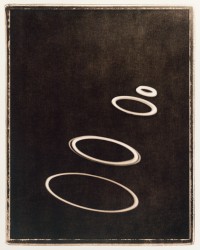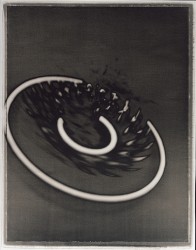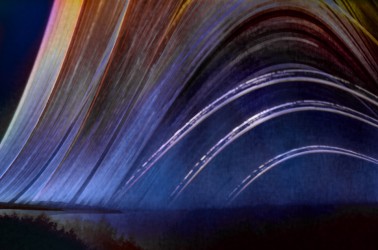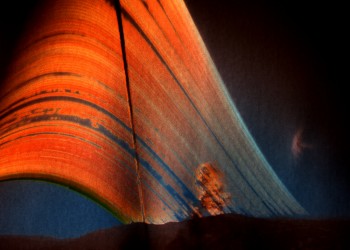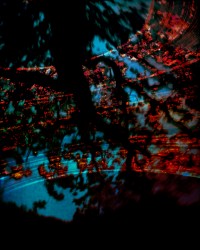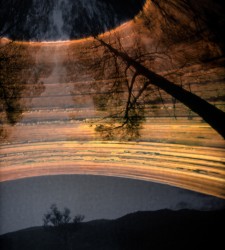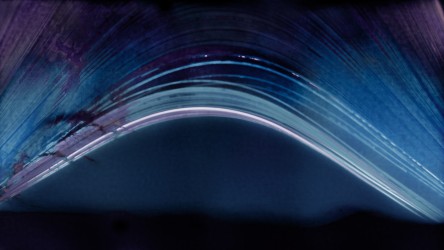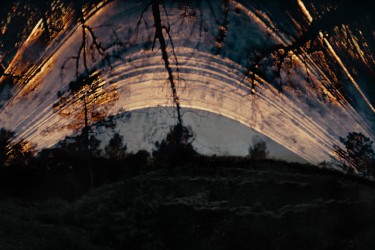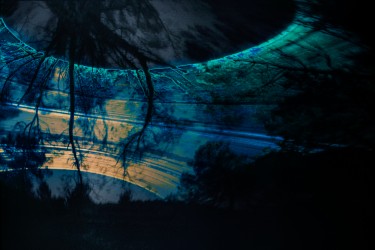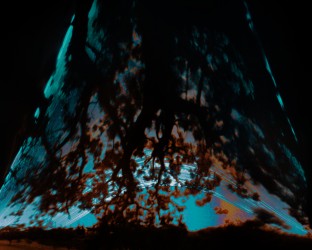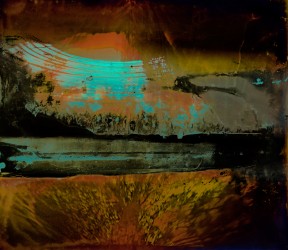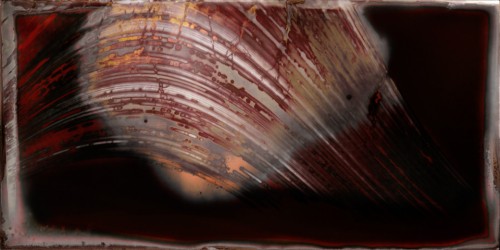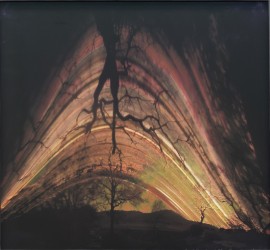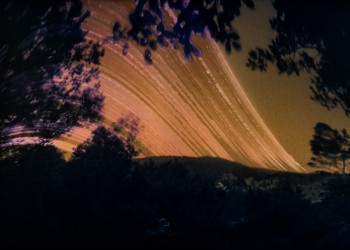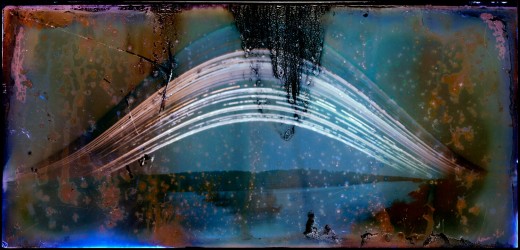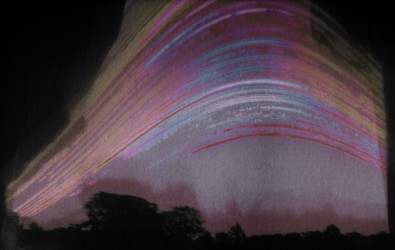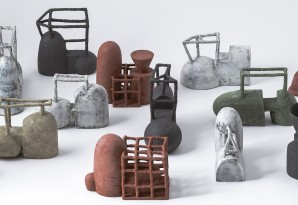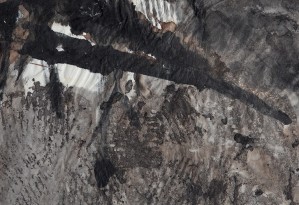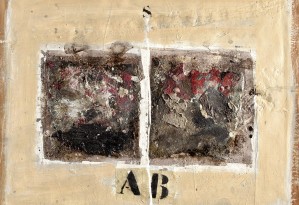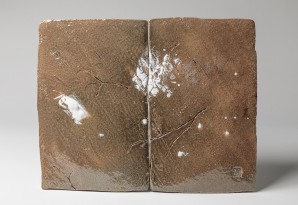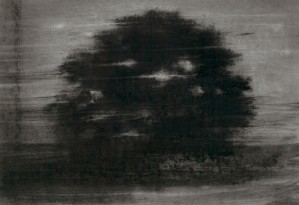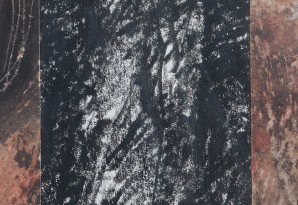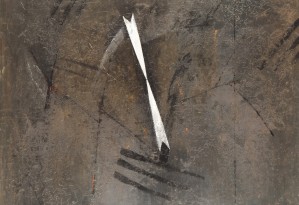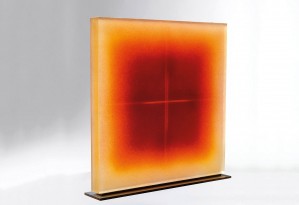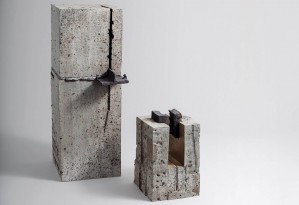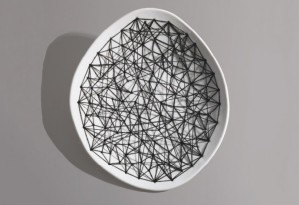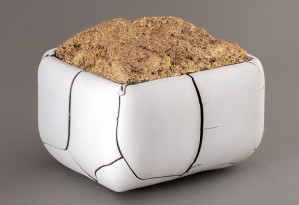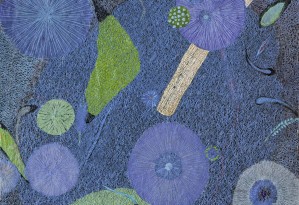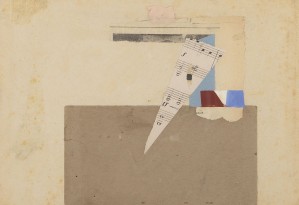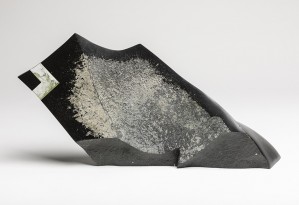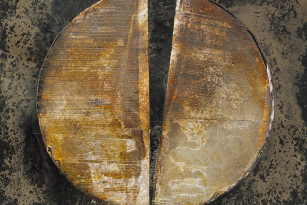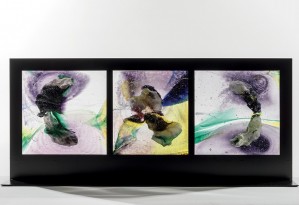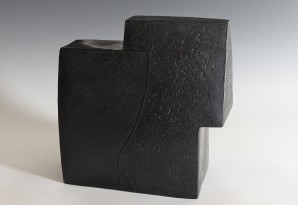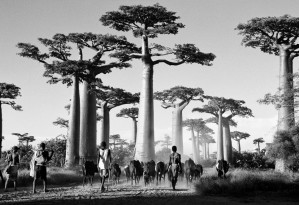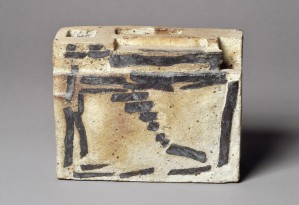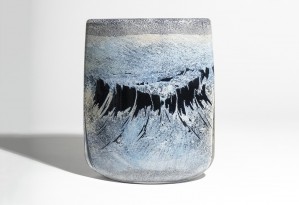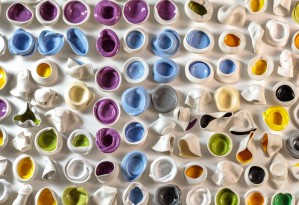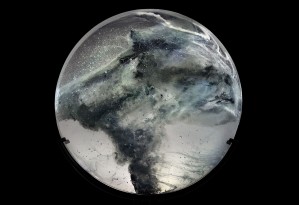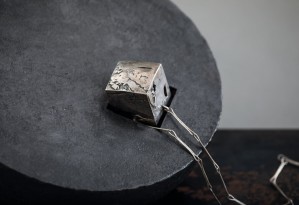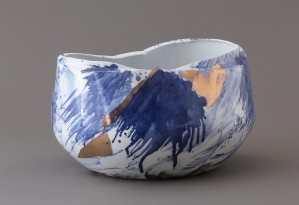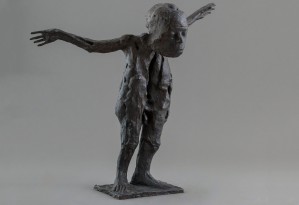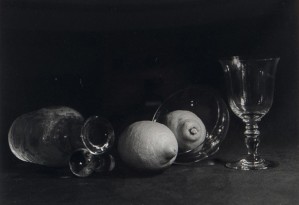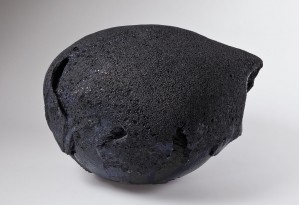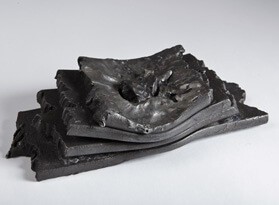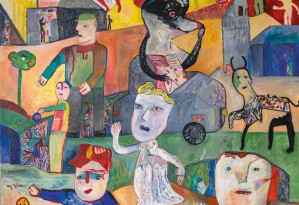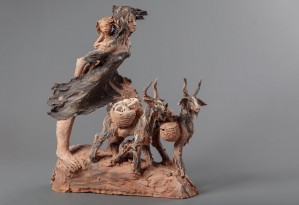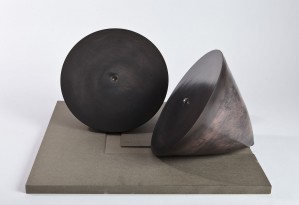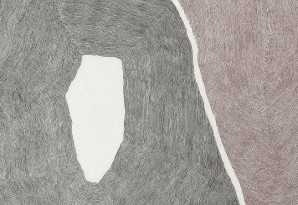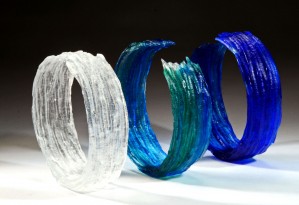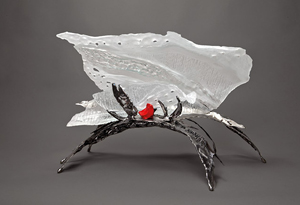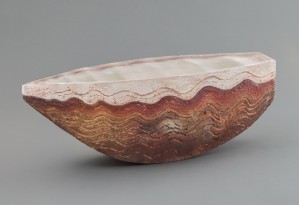MANN Robert Charles, Photography
In the mid-2000s, I was looking for a reliable and discreet master photographer to make prints of my personal photographs. I contacted the Herb Ritts Foundation, whose executive director, Mark McKenna, referred me to Robert Charles Mann, who had a solid reputation in the field. A relationship of sympathy and trust was born, which quickly developed into a friendship. I then discovered his personal work as a photographer, which I appreciated immediately.
Among his work, Robert developed a series using a pinhole camera - a small box like a miniaturised camera obscura, made by himself, with two holes and a light-sensitive medium inside. The latter records the daily trajectory of the sun from one solstice to the next, in other words for six months. This serial project is called Solargraphs, which he began producing at Chaumont-sur-Loire, where he has lived since the 1990s.
Over the course of our friendship of almost twenty years, over the course of his visits, Robert has set up his pinhole cameras at my home in California and in Provence, at the Château de Miraval where I now spend most of my time. Miraval, whose history dates back to the beginning of the 11th century with the construction of a Benedictine monastery, has been a hotbed of artistic creation since 1977, thanks to Jacques Loussier's founding of Miraval Studios, where top musicians from Pink Floyd to The Cure and Sting have recorded.
After acquiring the Miraval estate in 2011, I wanted to continue the story. First, by renovating the studios, which have reopened their doors to musicians. Secondly, by developing works of architecture - a lifelong personal passion. Finally, by welcoming artists from all walks of life (film directors, painters, sculptors and photographers) to take up residencies. And, out of passion, and to continue the history of this place, I am happily involved in the wine and olive-growing activities.
It is the Solargraphs made in this special place, where friendship, the beauty of nature and artistic creativity come together, that are brought together in this book. It is a pleasure and an honour to share with the public these works, which celebrate the beauty of the world and pay tribute to Miraval.
Brad Pitt
Extract - An art of “non-action”, or the deposit of time
From afar, a semblance of scratches, some in various shades of blue - azure, cobalt, blue-green, navy, indigo, mauve - others varying from gold to orange, trace a set of fine, arched curves in an uncertain space bathed in half-light. As we approach, the eye distinguishes familiar shapes: the slender silhouette of yew trees, other more indistinct trees, sometimes leafy and sometimes bare, branches that stretch out and appear to be nothing but shadow, the horizon line of a relief of hills or low mountains. Human constructions, too: here a pavilion, a roof; there low walls, the vague winding of a road in the distance.
Mikaël Faujour
Artist statement
I hope one finds my photographs an experience rich in dreams and that they induce an exploration of the psyche. Several different lensless cameras are used to accomplish this. The pinhole camera has a way of suggesting objects rather than representing them because of the particular quality the pinhole image produces. This suggestive character carries with it a more profound mystery, which is not found on the surface of the image but rather in the possibilities of interpretation. The pinhole camera provides the aesthetic means needed for a subjective experience by the viewer. When this technique is combined with my themes and choice of subjects, the photographs begin to breath and become metaphoric environments.
A singular characteristic of pinhole photography is the fact that exposures are quite long, varying from seconds to hours, or in the case of these solargraphs, to months. This cumulative exposure produces effects that cannot be seen by the eye. Moving objects become translucent, having a vibrating quality, and some objects may become completely transparent in the process due to displacement during exposure. There are objects in my photographs that produce effects that seem unassociated with the object itself.
The Solargraph Series is an experiment in both method and concept. Using the idea that the path of the sun through the sky changes each day and that a long exposure will yield a cumulative image of these paths, I point the pinhole camera toward the sky where the sun will be during the six months from solstice to solstice, either winter to summer or summer to winter. The final image is not a montage of several different images, but rather the result of a single continuous exposure for six months of the sun. This work bridges old school traditional techniques with modern digital techniques. The prints for each image are made on pure cotton fiber based paper with permanent inks.
An image's significance may change with every choice I make concerning its qualities of contrast, density, and tone. A photographic image can be printed in thousands of ways. The tactile quality of the print is as important as the choice of materials.
These photographs carry the possibility of many messages. They are enigmas born to be deciphered by the viewer.
Robert Charles MANN
Biography
When Robert was eight years old he made his first photographic print with a negative from his father’s archive. This, mind you, is before he had even taken a photograph. Robert’s father, who was also a photographer amongst many other renaissance man qualities, had a darkroom in their home. As a result Robert discovered the magic of photography in reverse so to speak. His mother, a concert pianist, influenced his particular photographic bent toward a more expressionist vision with her repertoire of 19th century impressionist composers.
During the 1980’s Robert was involved with many experimental music and performance art projects incorporating electronic and prepared instruments with visual installations. He started photographing for Exposure Magazine and concurrently took on the role of studio manager and exclusive printer for Herb Ritts producing all of his early books and editorial work. He soon became one of the most sought after photographic specialists in Los Angeles printing the work of Helmut Newton, Mary Ellen Mark, Michel Comte, Dennis Hopper, Peter Lindbergh and Sheila Metzner among many others. His work also includes producing prints for Twelve Tree and Twin Palms photographic books as well as the Hollywood Archives. Robert has published several photographic processes and his darkroom is on the cover of the renowned book “The New Darkroom Handbook” and featured inside. A count made several years ago by looking at past work documents proved that Robert has made over one million prints.
In 1989, with an international reputation in photography and photographic printing, Robert moved to Paris France. Today his work is made primarily with pinhole cameras and traditional nobel metal based printing techniques that achieve his particular photographic vision. He also composes music for films, television and multimedia.
Recently Robert has been working with Brad Pitt, first producing his story of Angelina Jolie for W Magazine and continues printing Pitt’s massive archive of negatives. Pitt has become a collector of Robert’s work from the “Orbit Series” and “Flower Series”.
Read moreTo know more
One Month - One Artist is a monthly event to make you discover the artists of the gallery.
Find the one dedicated to Robert Charles Mann published in December 2019, to download here ![]()
Exhibitions
2025 La fabrique des éléments, group show featuring 13 leading names in contemporary photography, galerie Capazza, Nançay
Seeing Time, galerie Capazza, Nançay
Équilibre, collective exhibition, galerie Capazza, Nançay
2021 Enfances, collective exhibition, Galerie Capazza, Nançay
2020 Le torse d’une femme a la pureté d’un vase, grandes courbes simples d’un fruit désiré, collective exhibition, Galerie Capazza, Nançay
Participation at Art Paris 2020 with the Galerie Capazza of Nançay, from September 10th to 13th, booth D 01
Cardi Projects, Cardi Gallery, Londres Angleterre
Found Waves, EXUO, Tours France
2019 L’Arbre, c’est le temps rendu visible, collective exhibition, Galerie Capazza, Nançay
2018-2019 Solargraphs, Galerie Asinerie du Domaine de Chaumont-sur-Loire, Chaumont-sur-Loire France
2017-2018 Meta Paysages, Galeries Hautes du Château de Chaumont-sur-Loire, Chaumont-sur-Loire France
2012 Then Came Now, Musée de Vendôme, Vendôme
2011 Saints and Sinnners, Antebellum Gallery, Los Angeles, California
Robert Charles Mann, Les Curieuses, Paris France
2009 Robert Mann, Galerie Basia Embiricos, Paris, France
2006 Robert Mann, Ritual Gallery, Paris, France
2005 Pingyao International, Pingyao Museum, Pingyao, China
2004 Robert Charles Mann, University of the Arts, Philadelphia, Pennsylvania
Summer Group Exhibition, Drabinsky Gallery, Toronto, Canada
2003 Marubi 2003, National Gallery of Arts, Tirana, Albania
Orbits, Lonsdale Gallery, Toronto, Canada
Landscapes, Hands, Flowers, Charles Nes Gallery, New York, New York
Pinhole and photograms, Lonsdale Gallery, Toronto, Canada
2002 New works, Charles Nes, New York, New York
Reflections, Lonsdale Gallery, Canada
Flowers, Michael Dunsford Gallery, Seattle, Washington
2001 One Off, Special Photographers Gallery, London, England
American photographers, French Institute, New York, New York
Why pinhole?, Visual Studies Workshop Gallery, Rochester, New York
Vues de Touraine, Maison du Loir et Cher, Blois, France
2000 Out There Here, Provincetown Museum of Art, Provincetown, Massachusetts
Tracing Shadows, Lonsdale Gallery, Toronto, Canada
Photo L.A. 2000, Charles Nes, Santa Monica Civic, Santa Monica, California
1999 Millennium, Special Photographers Gallery, London, England
Magiae Naturalis, Lonsdale Gallery, Toronto, Canada
Pinhole Art, Ohio Art League, Columbus, Ohio
Window Series, Pinhole Visions Gallery, Chapel Hill, North Carolina
1998 Sans objectif, Carré Davidson Galerie, Tours, France
Paysages Touraine, Carré Davidson Galerie, Tours, France
Camera Ready, York Quay Gallery, Toronto, Canada
Pinhole International, Lonsdale Gallery, Toronto, Canada
1997 Avant premier, Claude Samuel Galerie, Paris, France
Esprit des Lieux, Château de Tours, Tours, France
Petit format, Carré Davidson Galerie, Tours, France
